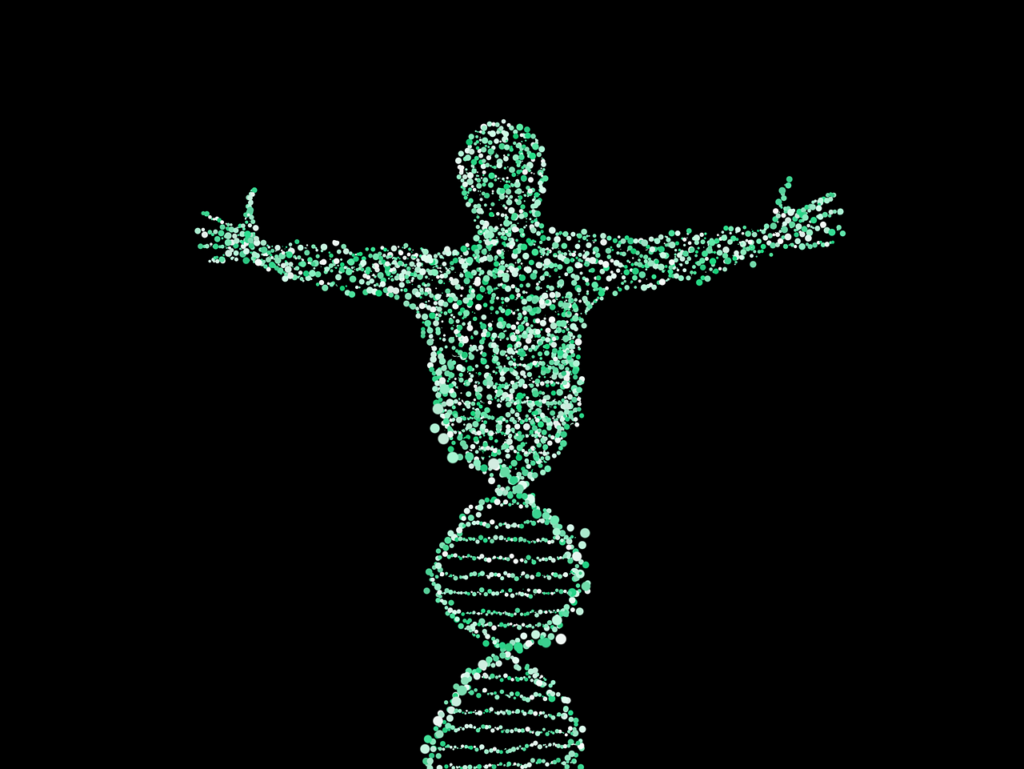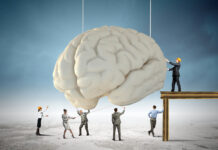A new study, published in the journal Molecular Psychiatry, found no link between genetics and the occurrence of depressive symptoms. Although previous researchers had theorized that genetics may interact with stressful life events to cause depression, the current data suggested otherwise.
“Our findings do not support the interaction hypothesis,” the researchers write. “We found no subgroups […] for which an interaction between stress and […] genotype was statistically significant.”

After many failed attempts by researchers to find a genetic basis for depressed mood, a 2003 study claimed to have discovered a link between depression and a polymorphism in the serotonin transporter gene SLC6A4. Known as 5-HTTLPR, this common genetic difference includes a shorter allele, theorized to result in lower serotonin levels in the brain than for people with a long allele. The 2003 study found that the presence of 5-HTTLPR increased the risk of depression, but only for those who also experienced life stressors or trauma. This interaction effect appeared to explain why some people develop diagnosable depressive symptoms after a traumatic event, while others do not.
The 2003 study has earned a celebrity status in the literature on genetics and psychiatry, having been cited over 4000 times. However, it has also been the subject of controversy. Researchers have noted that studies finding such powerful genetic effects often turn out to be false positives. Indeed, the conclusions of the 2003 study have been questioned by numerous researchers who failed to replicate their initial result. Studies confirming the genetic link have been criticized for methodological problems, such as using other symptoms not associated with depression, including data with contradictory statistical and genetic approaches (heterogeneity), and publication bias (negative results are unlikely to be published, even if accurate).
The current study attempted to replicate the initial findings with a large sample of over 38,000 people of European ancestry, using methods that are rigorous best practices to reduce heterogeneity and publication bias. They found that the presence of the 5-HTTLPR genotype did not increase a risk of depression, even in those who experienced significant life stressors and traumatic events. However, as expected, stress and trauma by themselves were strongly associated with the development of depression.
The researchers also wanted to determine if a particular subgroup of people might experience this effect, even if it was not true for the general population. They conducted further analyses and found that there were no subgroups for whom this genetic basis of depression was significant. That is, the researchers were unable to find a single group for whom this genetic component plays a role. Instead, their data confirmed yet again the most consistent finding in depression literature–stress and trauma are strongly linked with depressive symptoms, and genetics are not.
According to the researchers:
“Based on our findings, we conclude that if an interaction exists in which the S allele of 5-HTTLPR increases risk of depression only in stressed individuals, then it is not a broadly generalisable effect, but must be of modest effect size and only observable in limited situations.”
The authors suggest that research funding would be better served focusing on the known, strong causes of depression, such as life stressors and trauma, than on trying to find a genotype with an effect so small as to be undetectable in 38,000 people.
****
Culverhouse, R. C., Saccone, N. L., Horton, A. C., Ma, Y., Anstey, K. J., Banaschewski, T. . . . Beirut, L. J. (2017). Collaborative meta-analysis finds no evidence of a strong interaction between stress and 5-HTTLPR genotype contributing to the development of depression. Molecular Psychiatry, 00, 1-10. doi:10.1038/mp.2017.44 (Abstract)















This is what happens when someone confuses a syndrome with an independent entity. You get heterogeneous groups, so naturally there’s nothing consistent in your results when you study or treat them as having a similar or identical condition.
Report comment
How shocking, depression is caused by depressing circumstances, not “chemical imbalances” in the brain. The psychiatric drugs do create “chemical imbalances” in the brain, however. The entire belief system of the psychiatric industry is insane. But of course the psychiatrists can’t convince healthy people they are insane unless the psychiatrists’ beliefs are insane, and the psychiatrists themselves behave with absolutely insane and almost incomprehensible disrespect of their clients, which is exactly what they do.
My psychiatrist literally declared my entire real life a “credible fictional story” in his medical records, after I confronted him with all his delusions about me written into his medical records, rather than apologizing and correcting his errors as a sane and ethical human being would do. That was such staggeringly insane disrespect that I had to leave him. Is declaring another person’s life “fictional” actually medical care? Although, according to my psychiatrist’s medical records, he did not even know the difference between a person’s head and her private parts. I had no idea doctors were that insanely stupid.
Report comment
I am amazed that even the initial research gets so much press and excitement! Even if the findings were true (and I am not the least surprised that they aren’t), all it shows is that a certain small percentage of sufferers may have a certain genetic pattern. The genetic pattern doesn’t occur in all depressed people, nor do all people with the pattern get depressed. So what the fuck? Who cares? And now, shockingly, we find that the link so celebrated is not even valid! Why don’t we just accept that we can’t change genetics, no matter how much or little they are involved, and focus on changing the environmental variables (food, sleep, chronic stress, trauma, etc.) that we actually have some control over?????
Report comment
Researchers discovered patients with social phobia were producing too much serotonin.
http://www.google.com/search?q=researchers+discovered+patients+with+social+phobia+were+producing+too+much+serotonin
I found that by accident but its more interesting then my original comment idea.
Report comment
Antidepressants always made me feel wired. I thought antidepressants would un-depress you and create relaxation, but they are hard to be on. It looks like I never needed more serotonin and certainly not the extra cortisol that antidepressants release. Antidepressants are stimulating and uncomfortable to be on. They affect sleep, yet I would have thought that good sleep would be vital for overcoming depression.
Report comment
When I first got depressed at 17 years old my GP tried me on antidepressants which did not do much so he sent me to see a psychiatrist who also prescribed antidepressant drugs. In those days it was tricyclic’s and they didn’t do much. I bought a book on depression which stressed genes as being the main vulnerability to depression and this terrified me. I felt stuck with genes that were no good and it made me feel inadequate, not as good as other people.
Some people like it when their doctor says they have a physical illness in the brain because they now feel that they have a genuine illness and it is not a failure on their part. But I got the opposite feeling, that there was truly something wrong with me and that it was very hard to fix. I was scared.
I didn’t respond to treatment and so my p.doc put me on lithium saying I was a manic depressive who stayed in the depressed half all the time. I had to have regular blood tests to make sure it wasn’t damaging my liver. What I really had was GAD and I was petrified. A new psychiatrist took me off lithium immediately, but I was eventually put on Mianserin which soon turned me hypomanic. Fortunately I figured it out in a few days that I was high as a kite and I calmed myself down. I did not tell any psychiatrist for fear of being put on lithium again and being labelled bipolar which my book said was a serious psychotic illness. I kept getting mild manias for years but when I came off the antidepressant it all went away. I was relieved that I was not bipolar after all.
I found books by Dorothy Rowe and ones on Bioenergetics by Alexander Lowen, and both these people said that manic depression wasn’t genetic, nor was depression. I ended up spending a fortune on some poorly trained quack therapist who did psychodrama and Bioenergetics and it went on for a year and it was hell.
I ended up collecting more and more books where the authors said that they doubted that genes played any role in depression. It reassured me, but geneticists said that they kept finding genes for depression, like the short serotonin gene, and it was always in the newspapers freaking me out.
When I went to my psychiatrist I was expecting to get therapy but after 45 minutes of listening to me he lent across his table to get his prescription pad and wrote me a prescription for an antidepressant and then he told me to come back after a month. I walked down the road in utter despair. I wanted to talk to someone, I felt alone and scared. My World was going upside down.
Psychiatry really messed me up with its genetics theories and lack of psychotherapy. I never responded to any of their drugs and then one day a psychiatrist said I would never get better. He said I was just a very unfortunate young man who was born with a low stress threshold and that I would never be able to cope with life and that no one could help me. I walked down the road with the word INADEQUATE going through my mind over and over again with the part ‘QUATE’ chopping through my brain splattering blood everywhere, which was the tears pouring out of my eyes. I cried all the way home on the bus and didn’t care who saw me. I wanted to die.
I never went back to psychiatry after that and I took myself off mianserin. But the starvation mode the drug had put me into did not go away and I remained like that for years afterwards until it eventually subsided.
Years later I was still struggling with GAD and shyness but not depression. I felt stuck so my GP suggested a SSRI. I had heard so much good stuff about it and I thought it would relax me and that I would then I be able to do mindfulness, and that it might also help me to get out and meet people. It didn’t relax me at all but I did get out and meet new people and within a few months I got a nice girlfriend but I couldn’t have sex, so I came off the antidepressant but my sex drive never came back, so she left me. Years later I found out I had Post SSRI Sexual Dysfunction and I became more lonely than ever. I would go out dancing but was I really dead scared if I nice girl took an interest in me because relationships never lasted long. I was sexless and numb.
Psychiatry: I hate you
Report comment